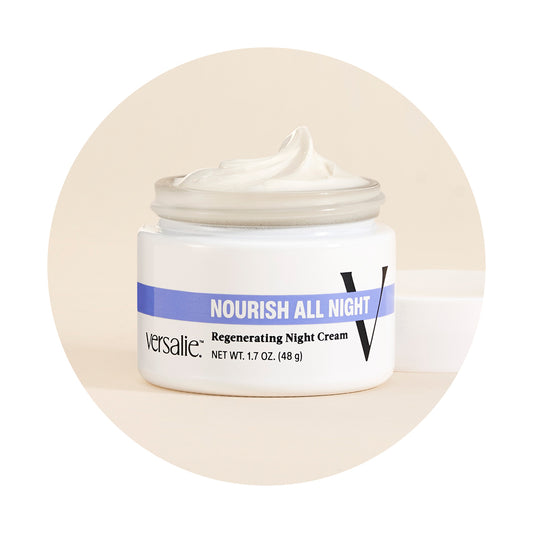I’m on the other side of menopause. That does not mean that I don’t still have symptoms, like occasional hot flashes, night sweats, brain fog, and dry skin. Nor does it mean that I am completely over the emotional impact that menopause has on many people.
What I do mean, in this context, is that I have officially reached the point in my life, where getting pregnant the old-fashioned way and having a biological child is no longer feasible. This makes me a little uncomfortable.
It's not that I necessarily want to get pregnant again and have another child. I am 52 years old and quite frankly, the thought of being pregnant, birthing a child, and having to care for an infant feels exhausting and overwhelming. It’s not something I would choose to do again. But the fact that being able to procreate is no longer an option for me is hitting me harder than I expected.
I have one biological child, a daughter who is 19 years old. She is one of the greatest joys of my life. She made me a mother, a role I cherish and am grateful for every day. My husband and I made a conscious decision a few years after she was born that we were well-equipped to be a family of three. Even after our decision was made, there were moments of doubt and uncertainty.
 Would we regret not trying for a second? Would adding another child change the beautiful connection that we have with our daughter? Would we be able to provide for two children in the same way we can provide for one? A lot of uncomfortable questions.
Would we regret not trying for a second? Would adding another child change the beautiful connection that we have with our daughter? Would we be able to provide for two children in the same way we can provide for one? A lot of uncomfortable questions.
We put a lot of focused time and energy towards pondering and answering these questions (and more) for many years. And we landed with a sense of calm and confidence that our decision was best for our family. And yet, there is still a finality that hits hard post-menopause. A sense of discomfort that such a big decision is being made for me instead of one that I can make for myself.
I have talked about this fact with some of my post-menopausal friends and in our conversations, I consistently find that I am not alone in this discomfort. Some of these friends have children and some do not. But all of them understand this sentiment. We have all concluded that these feelings stem from losing our sense of control. Up until this point, we were able to make the decision to try to have biological children when we were ready. But now, that decision has been stripped from us.
There is also consensus among all of us that the natural change that happens during menopause, that our bodies are no longer ovulating and producing the eggs needed to create an embryo, happens to us. We cannot time its arrival and therefore, must accept when it comes without fail.
 I’ve been thinking a lot about this topic lately and have been trying to come up with examples of other organic moments in a person’s life that happen, sometimes unexpectedly, that forever change your life. The things that come to mind, being diagnosed with a sudden or chronic illness or even worse death, have a finality to them that is irreversible. These things often happen unexpectedly and can feel out of your control. And they typically result in a grieving process that takes time to work through.
I’ve been thinking a lot about this topic lately and have been trying to come up with examples of other organic moments in a person’s life that happen, sometimes unexpectedly, that forever change your life. The things that come to mind, being diagnosed with a sudden or chronic illness or even worse death, have a finality to them that is irreversible. These things often happen unexpectedly and can feel out of your control. And they typically result in a grieving process that takes time to work through.
Taking time to grieve and starting to accept the change presented to you is all part of the human experience, a healthy part of life. Change can be uncomfortable and painful, but it can also be the beginning of something new: a new phase, a new challenge, a new way of being.
What I’m starting to learn on this side of menopause, is that being uncomfortable is okay. My body is going through, and will continue to go through, changes. Some of these changes I won’t be able to control and some too will result in a permanent change.
While these are the facts, I am choosing to focus on what my body can still do for me. I am grateful for the abilities that I do have and am working on continuing to find ways to be comfortable with any discomfort I experience during the rest of my life journey.









1 comment
I thought this story was so beautifully and authentically written. Thank you for sharing this story and others that so thoughtfully discuss all angles of menopause and women’s lives.